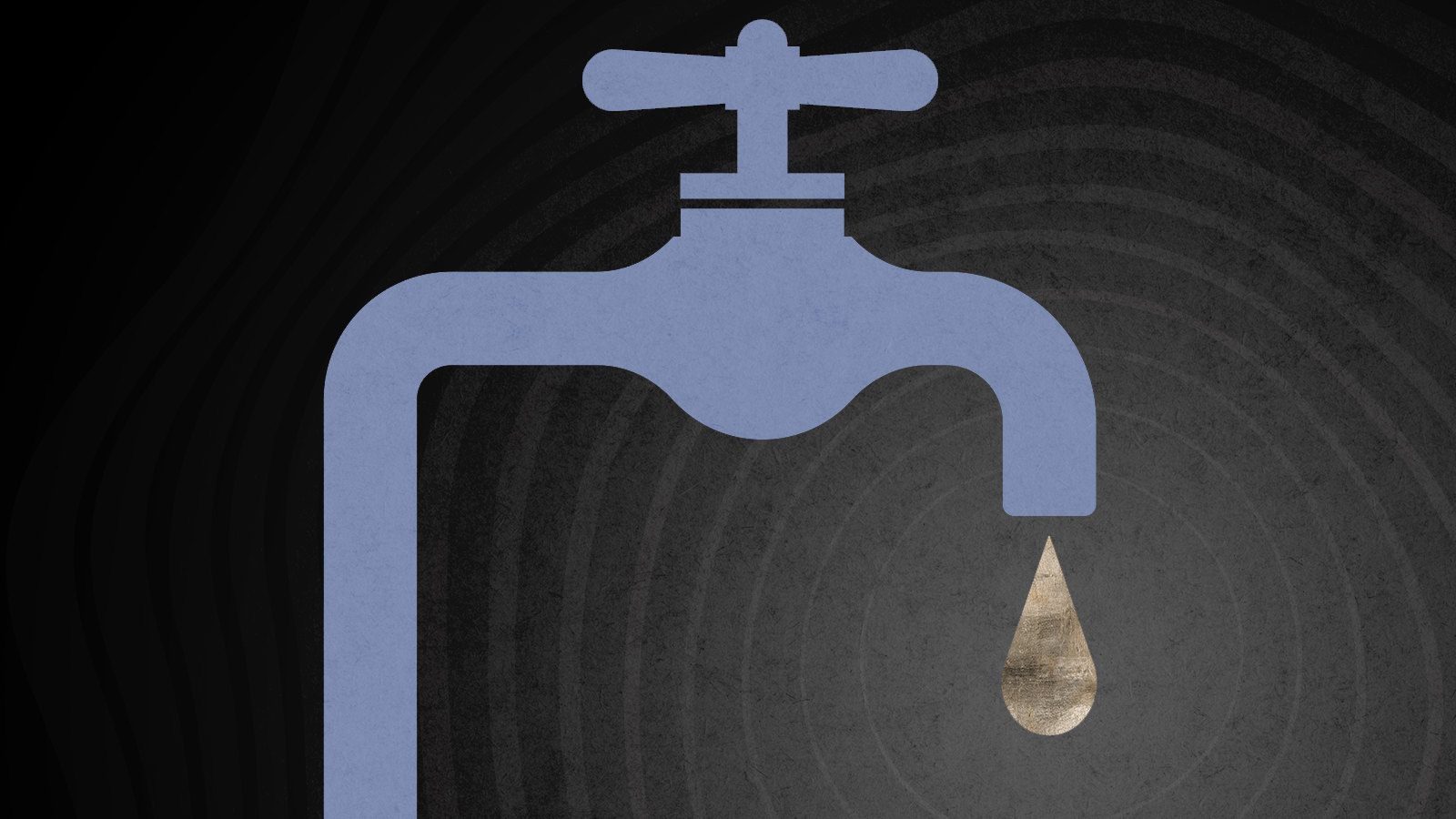Why the Clean Water Act no longer holds water


A free daily email with the biggest news stories of the day – and the best features from TheWeek.com
You are now subscribed
Your newsletter sign-up was successful
What's the best water you've ever drunk?
It might sound like a silly question (at least until you drink the tap water at the Phoenix airport and set the bar for the worst). But I know my answer: It came out of a river on Mt. Rainier during a backpacking trip, a crystalline glacier melt so cold it hurts your teeth and so crisp that you're tempted to drink it straight out of your cupped hands, bypassing the necessary precaution of a filter. Voss could never.
But that idyllic pleasure of drinking out of a mountain stream — much less escaping the summer heat by diving into a suburban lake, fishing for dinner in a favorite hidden cove, or tubing down a river with your cousins — are becoming rarer and rarer experiences (at least to have safely) due to the continued bludgeoning of the Clean Water Act.
The Week
Escape your echo chamber. Get the facts behind the news, plus analysis from multiple perspectives.

Sign up for The Week's Free Newsletters
From our morning news briefing to a weekly Good News Newsletter, get the best of The Week delivered directly to your inbox.
From our morning news briefing to a weekly Good News Newsletter, get the best of The Week delivered directly to your inbox.
The problem is, you can't just chip away at something like "clean water," for which there can be no halfway measure. After all, nobody wants to drink "lightly polluted" water or swim in "mildly contaminated" rivers.
Nevertheless, the latest blow to the Clean Water Act came Wednesday when the Supreme Court delivered a 5-4, unsigned order that at least temporarily reinstates a Trump-era rule limiting states' and tribes' abilities to block the dumping of pollutants into America's waterways. But while the decision is as ghoulishly terrible as it sounds, the Clean Water Act has long been riddled with loopholes that prevent it from achieving fishable, swimmable, drinkable waters. Fifty years after the Clean Water Act was passed in 1972, "around half of all lakes and rivers across the country … [are] classified as 'impaired,'" High Country News writes, "meaning that their fish are inedible, their water undrinkable, they're unsafe for humans to swim in and inhospitable to aquatic life."
Americans like to think we can have it both ways; taking pride, pleasure, and enjoyment from our natural lands while also balking at attempts to regulate those places and resources. But there's nothing like water to prove the folly of such thinking; after all, would you want to drink from a well that contained "some" arsenic? Probably not.
At a certain point, then, we need to make up our minds — do we want clean water, or don't we? — and not riddle the ensuing protections with so many loopholes that they're about as effective as a dam made of mesh. Instead, we should broaden a more uncompromising, steely resolve to other easily wishy-washy environmental goals too.
A free daily email with the biggest news stories of the day – and the best features from TheWeek.com
As it stands, corporate interests run amok in America, making their sludgy money while pointing to the shell of the Clean Water Act as proof that the environmentalists got their way. How's that for leaving a bad taste in your mouth?
Jeva Lange was the executive editor at TheWeek.com. She formerly served as The Week's deputy editor and culture critic. She is also a contributor to Screen Slate, and her writing has appeared in The New York Daily News, The Awl, Vice, and Gothamist, among other publications. Jeva lives in New York City. Follow her on Twitter.
-
 6 exquisite homes with vast acreage
6 exquisite homes with vast acreageFeature Featuring an off-the-grid contemporary home in New Mexico and lakefront farmhouse in Massachusetts
-
 Film reviews: ‘Wuthering Heights,’ ‘Good Luck, Have Fun, Don’t Die,’ and ‘Sirat’
Film reviews: ‘Wuthering Heights,’ ‘Good Luck, Have Fun, Don’t Die,’ and ‘Sirat’Feature An inconvenient love torments a would-be couple, a gonzo time traveler seeks to save humanity from AI, and a father’s desperate search goes deeply sideways
-
 Political cartoons for February 16
Political cartoons for February 16Cartoons Monday’s political cartoons include President's Day, a valentine from the Epstein files, and more
-
 Trump’s EPA kills legal basis for federal climate policy
Trump’s EPA kills legal basis for federal climate policySpeed Read The government’s authority to regulate several planet-warming pollutants has been repealed
-
 Big-time money squabbles: the conflict over California’s proposed billionaire tax
Big-time money squabbles: the conflict over California’s proposed billionaire taxTalking Points Californians worth more than $1.1 billion would pay a one-time 5% tax
-
 Did Alex Pretti’s killing open a GOP rift on guns?
Did Alex Pretti’s killing open a GOP rift on guns?Talking Points Second Amendment groups push back on the White House narrative
-
 Washington grapples with ICE’s growing footprint — and future
Washington grapples with ICE’s growing footprint — and futureTALKING POINTS The deadly provocations of federal officers in Minnesota have put ICE back in the national spotlight
-
 Trump’s Greenland ambitions push NATO to the edge
Trump’s Greenland ambitions push NATO to the edgeTalking Points The military alliance is facing its worst-ever crisis
-
 Why is Trump threatening defense firms?
Why is Trump threatening defense firms?Talking Points CEO pay and stock buybacks will be restricted
-
 The billionaires’ wealth tax: a catastrophe for California?
The billionaires’ wealth tax: a catastrophe for California?Talking Point Peter Thiel and Larry Page preparing to change state residency
-
 Trump considers giving Ukraine a security guarantee
Trump considers giving Ukraine a security guaranteeTalking Points Zelenskyy says it is a requirement for peace. Will Putin go along?
